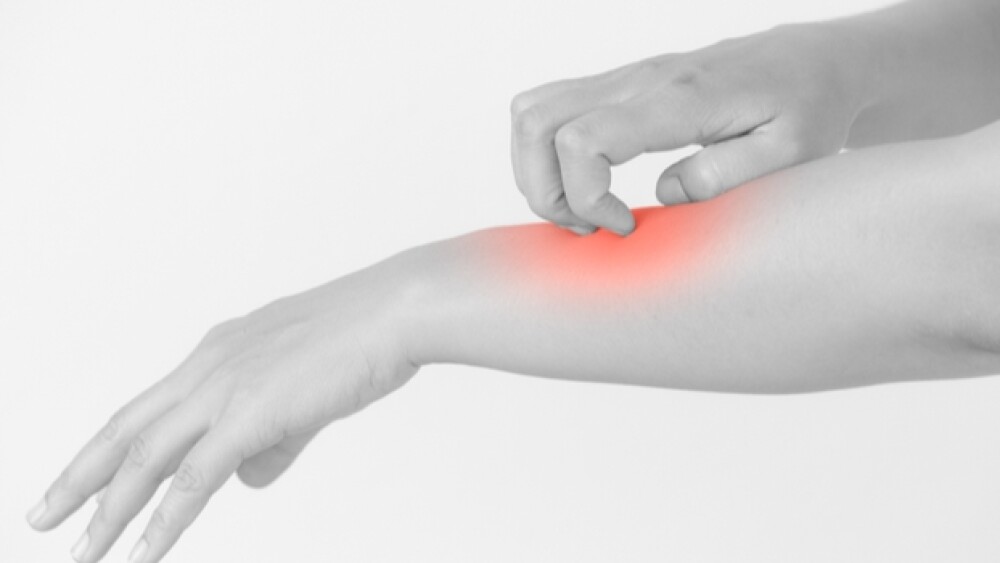The investigational JAK inhibitor has hit the mark in three late-stage studies, with readouts from two more late-stage trials expected later this year.
Eli Lilly and Incyte Corporation’s Olumiant (baricitinib) has hit the trifecta in the BREEZE-AD clinical development program. The investigational JAK inhibitor has hit the mark in three late-stage studies, with readouts from two more late-stage trials expected later this year.
This morning, the two companies said baricitinib met the primary endpoint in BREEZE-AD7, the third pivotal Phase III trial in the BREEZE-AD program this year. BREEZE-AD7, was an investigational study evaluating the efficacy and safety of baricitinib, an oral JAK inhibitor, to treat moderate to severe atopic dermatitis. The drug hit the primary endpoint. The companies said adding baricitinib to standard-of-care topical corticosteroids significantly improved disease severity, measured by the validated Investigator’s Global Assessment for AD score of “clear or almost clear” skin at 16 weeks.
BREEZE-AD7, conducted outside of the United States, is the third of five placebo-controlled trials in the Phase III program and recruited patients from Asia, Europe, South America and Australia. Safety data remained consistent, however, Eli Lilly and Incyte said one pulmonary embolism was reported in the baricitinib, No major adverse cardiovascular events, or deaths were reported in the study.
Olumiant has already been approved for the treatment of adults with moderately to severely active rheumatoid arthritis. JAK-dependent cytokines have been implicated in the pathogenesis of a number of inflammatory and autoimmune diseases. There are four known JAK enzymes: JAK1, JAK2, JAK3 and TYK2. OLUMIANT has greater inhibitory potency at JAK1, JAK2 and TYK2 relative to JAK3, Eli Lilly noted.
Lotus Mallbris, vice president of immunology development at Eli Lilly, said that despite all the drugs on the market, moderate to severe atopic dermatitis remains a disease with significant unmet treatment needs. Moderate-to-severe AD is characterized by intense itching, resulting in visibly damaged skin and sleep loss. While the relapsing condition can vary from patient to patient, Mallbris said there are few medicines that address the different signs and symptoms in each patient.
“Today’s baricitinib results in combination therapy reveal important additional clinical information in a chronic disease where patients currently have limited oral treatment options,” Mallbris said in a statement.
In February, the two companies reported that Olumiant also hit the mark at 16 weeks in the in BREEZE-AD1 and BREEZE-AD2 studies evaluating the drug as a monotherapy for the treatment of adult patients with moderate to severe atopic dermatitis.
Eli Lilly said it plans to share the detailed 16-week data and analyses from BREEZE-AD7 at future scientific venues and in peer-reviewed journals later this year. Top-line data from the remaining two Phase III trials will be announced later this year or early next year.
Newsletter Sign Up
Sign up to get the latest life sciences news and updates delivered straight to your inbox.





